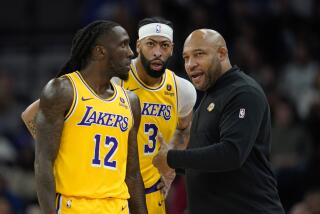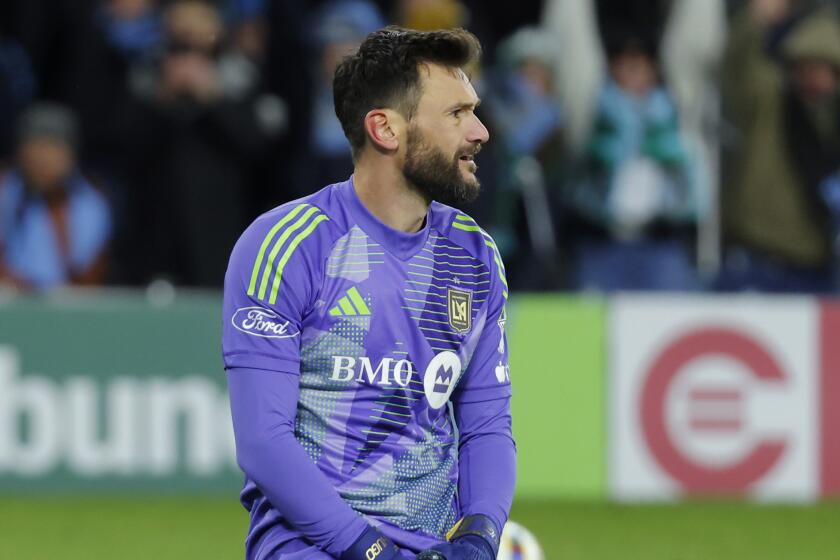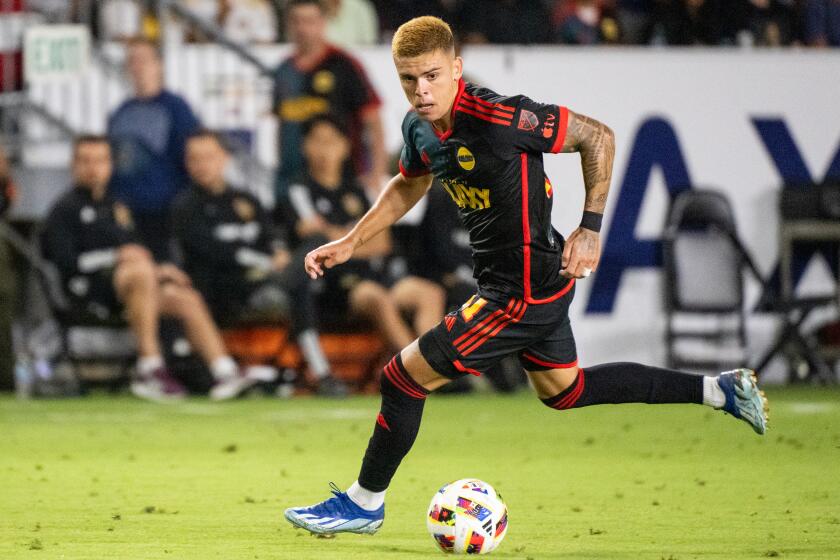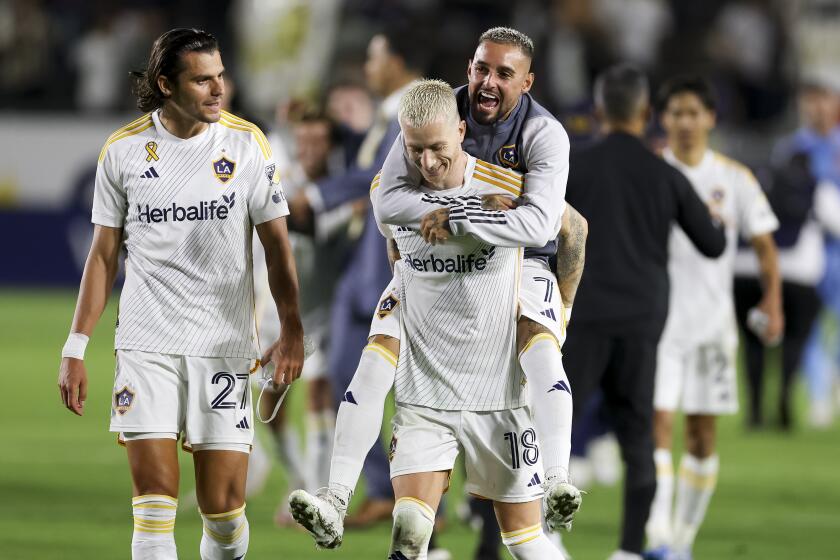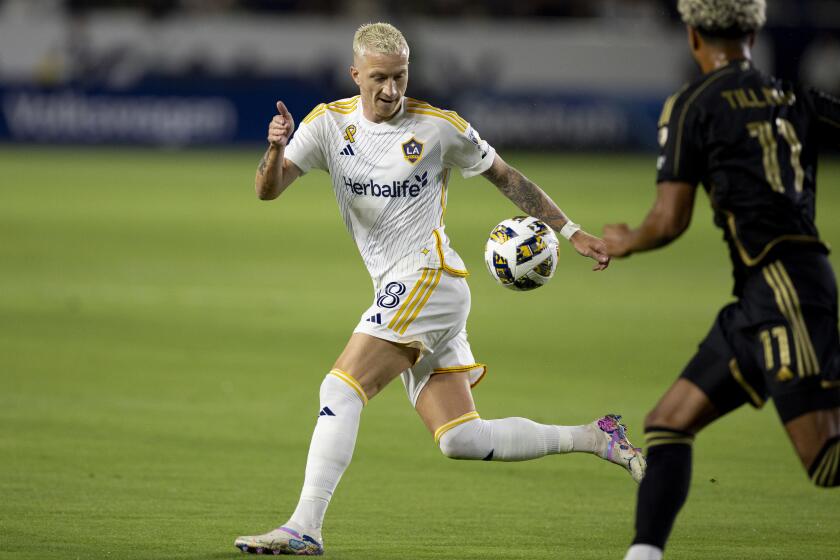English Premier League coaches are constantly on the hot seat
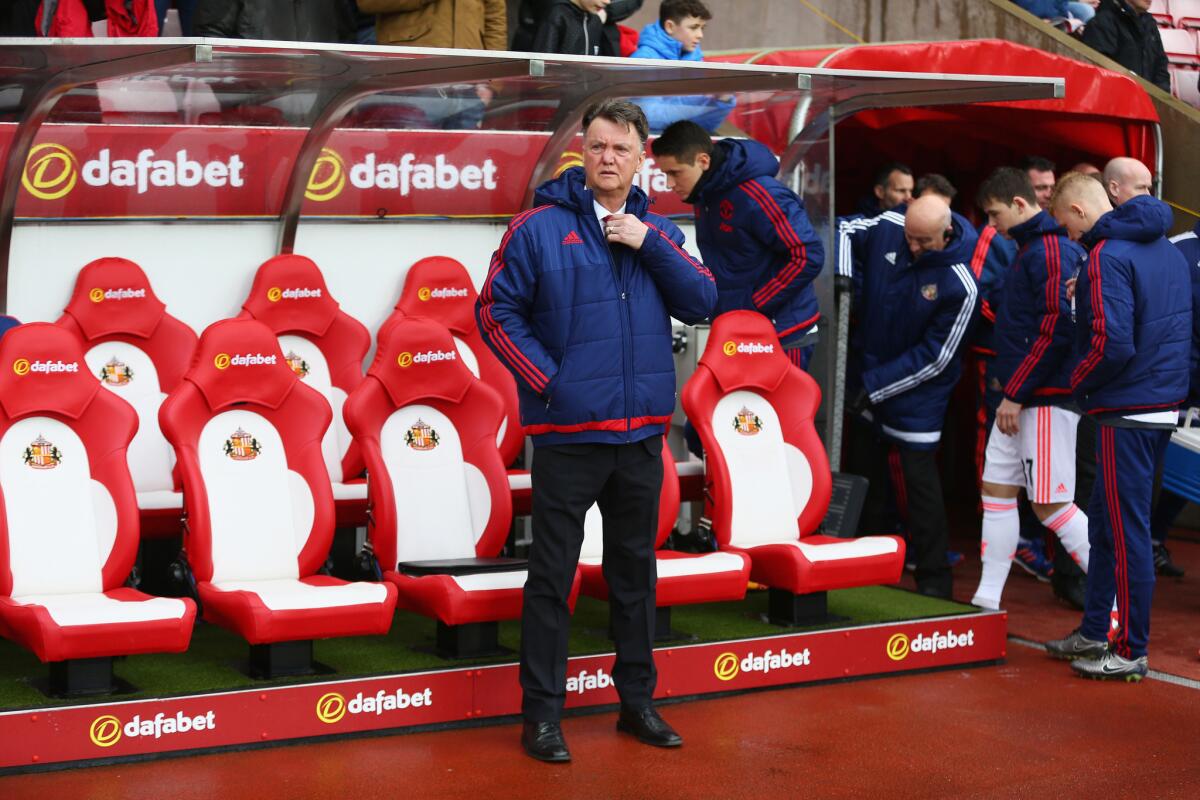
Manchester United Manager Louis van Gaal looks on before a match against Sunderland on Feb. 13.
Everton Coach Roberto Martinez surveyed the wreckage of the English Premier League’s coaching ranks and winced.
“The average length of a manager in the English game is just over a season, which is really scary,” said Martinez, who has coached for seven seasons at Wigan and Everton of the EPL and never failed to be at a game. Only Arsenal’s Arsene Wenger has a longer streak among current EPL coaches.
“In order to be consistent and in order to become very good in what you do, you need stability and you need consistency. Changing a manager from time to time is not going to help that.”
Yet, for most EPL clubs, patience in a luxury they can no longer afford since slipping even one spot in the standings will cost them millions of dollars in lost revenue.
That’s one reason why half of the league’s 20 teams have changed coaches since the end of last season. Chelsea, the defending champion, went through three men in five days in December. And only Wenger, Manchester City’s Manuel Pellegrini, Stoke City’s Mark Hughes and Martinez have been with their current teams for more than two consecutive seasons.
That will end when the current season does because Pellegrini, who has won two league titles in three years, was told six weeks ago he will be fired in May. Manchester United’s Louis van Gaal may not make it that far. Hired among much fanfare 21 months ago, he is on his way out despite a reported $10.1-million salary and the fact his team remains in the hunt for a European tournament berth.
Compare that with the NBA, where 13 coaches have been with their current teams since 2013. Or Major League Baseball, where nine managers have spent at least five seasons with their current club.
“That’s the sad reality of the English game,” Martinez said. “You’re always judged on the first-team results. So if you lose three games in a row, your job is on the line.”
It hasn’t always been like that. Wenger has been at Arsenal for two decades and Alex Ferguson coached 1,500 games over 26 seasons at Manchester United before stepping down in 2013.
The team has used three coaches in the three seasons since Ferguson retired.
Blame the change on money. The television revenue pouring into the league, an estimated $13 billion over the next three seasons, has made it tougher for owners to remain patient. With the difference between each spot in the standings expected to grow to nearly $3 million in so-called “merit money” starting next season, teams need a coach who will win immediately and continue to improve.
“Managers are put in a situation where they have to make good short-term decisions, which for a football club is not the right thing,” Martinez said. “The right thing is managing a club like you’re going to be there for 100 years. You see young players developing.
“But unfortunately I don’t think the modern game in England is guided toward that patience from the fans. All the pressure goes to the owners and the chairmen, how they hold the fans’ feelings and how long they can support the manager to allow them to work.”
Similar pressures are present in Europe’s four other top leagues. In the last 10 months, there have been at least 53 coaching changes combined among the 98 teams in the EPL, Spain’s La Liga, France’s Ligue 1, Germany’s Bundesliga and Italy’s Serie A. But if top coaches rarely keep their jobs for long, their frequent stays of unemployment also tend to be short, with one team’s reject often greeted as another’s savior.
When Pep Guardiola moves from Bayern Munich to Manchester City to replace Pellegrini in May, for example, that will mark his third team in five years. And if Jose Mourinho takes over for Van Gaal as expected, Manchester United will be his fourth club in seven years. Stoke City’s Mark Hughes and Sunderland’s Sam Allardyce are with their fifth EPL teams since 2007.
With the exception of Hughes, those coaches have something else in common besides a stack of pink slips: All were defenders or defensive midfielders in their playing days. Just as catchers tend to make the best baseball managers — 14 of the 30 major league teams will be led by catchers this season — defense-minded players tend to make the best soccer coaches.
“Obviously, you have a different vision developed as a player,” said U.S. national team Coach Juergen Klinsmann, one of the few world-class strikers who also found success as coach. “When you are coming from the back line you always have the whole game in front of you.
“A lot of coaches come out of the [defensive midfield] position. They always have to kind of be connected with the back line at the same time they have the vision to see everything that happens ahead of them.”
Martinez agrees while adding another layer to the theory. Defensive players, he says, see the game in tactical terms and are responsible for the whole field while strikers often just react.
“They don’t think about what they’re going to do. They’re just instinctive,” he said. “So it becomes very difficult for them when they become managers to be so structured in the way they’re going to work.”
Plus players who found goal scoring easy often struggle to understand why others can’t do it as well. And for a club coach, there isn’t time to work through those issues.
“The support a manager is going to get in a football club is quite thin compared to what it should be and what it’s been the past,” Martinez said. “We’re in a results business. And you get judged every game, you get judged every day.”



